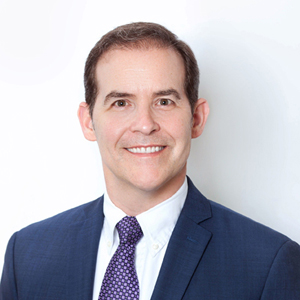It’s the end of the year. Everyone’s busy with holiday activities and making plans for next year, and DBSA is no exception. But in-between activities, we’re still making sure the peer voice is heard. In this eUpdate, see how we’re pushing forward to end the year on a positive note.
DBSA Advocates are Front and Center in the Fight Against Stigma
Advocacy can take many forms. In September, Melinda Hasbrouck, DBSA advocate share her lived experience as a member of a panel in front of hundreds of other advocates at the National Council for Behavioral Health’s Hill Day in Washington, D.C.
Hill Day provides hundreds of peers, family members, providers, and community stakeholders access to sessions and workshops on federal behavioral health policy, followed by visits with their elected officials on Capitol Hill to advocate for better resources for mental health and substance use disorder treatment across the country.
Past years’ Hill Day participants have played a crucial role in securing congressional support for the Excellence in Mental Health and Addiction Treatment Expansion Act, funding for Mental Health First Aid, and much more! With 20 national partner organizations, Hill Day is the largest behavioral health advocacy event of the year.
Hill Day 2020 is June 23-24, so mark your calendar!
Please share with colleagues, family, and friends to assist us in this grassroots effort to make our voice heard.
DBSA Calls Upon Society to More Sensitively Address Mental Health
DBSA advocates for positive representations of people living with mood disorders throughout society. Our education, outreach, and support of peer empowerment works to reinforce tolerance and equity. Through our monthly e-update and website, DBSA showcases empowering stories of individuals whose lives have been touched but not limited by a mood disorder via the Life Unlimited and I’m Living Proof series. These vehicles along with social media have been used during Minority Mental Health Month to bring broader awareness to underserved communities.
But there is more we can do. Discrimination grows out of stigma and may be either readily apparent or subtle. Stigma contributes to exclusion, poor social support, social isolation, loneliness, and low self-esteem. Having to overcome stigma and discrimination are unneeded obstacles to achieving wellness, and that must be changed.
DBSA recognizes multiple components comprise stigma and are beyond the ability of legislative action to correct. Yet, we believe the media and lawmakers have a particular responsibility to embrace these principles. This includes educating the public to decrease stigma and make it easier for people with mood disorders to ask for and receive the help they need
Read the DBSA position paper: Stigma and Discrimination to learn how DBSA will continue to support and promote anti-discrimination programs that addresses all types of societal stigma and how we will call upon the media and our government to support those efforts.
Please share with colleagues, family, and friends to assist us in this grassroots effort to make our voice heard.
Parent and Caregiver Corner
Tradition is the expectation this time of year—annual parties, work gatherings, and outings with friends loom on our calendars. A time of year which touts so much joy can be filled with a great deal of stress. When families begin traditions, they often hold such valuable meaning and promise. But change is inevitable—growing children, aging parents, health conditions, financial makeup, and living situations—all which affect traditions. After the long to-do lists, shopping trips, and house cleaning, we are often searching for the same comfort we may have had in past years. For parents and caregivers, this time of year can be extra demanding, which is why it is important to find ways to take care of yourself this month. Here are some ideas to help you through this season.
Simplify. Is a guest list getting too long? Are the decorations out of control? Are travel plans too much? Take stock of things you do every year—what do you really value? What is causing more stress? By letting go of things that you won’t miss, you may be able to free up some much-needed time that can be used for you.
Say No! It’s okay! Sometimes we are asked to be many places and be there for many people. If you are able to, kindly decline some plans or events and honor what you want to do this season.
Don’t feel guilty. When you have been everything to everyone, it is easy to feel guilty if you adjust plans. Know that you are taking care of yourself better so that you will be able to continue being the awesome caretaker you are!
Create a tradition to honor yourself. The end of the year is really a good time for taking stock. Honor what you have accomplished this year. Think through things that were difficult—how might you change these things in the future? Think of what you are looking forward to in the future. Practice gratitude and share appreciation with friends and families. Most importantly, listen to yourself this season—practicing kindness towards yourself first will make you even more ready to share kindness with your friends and family.
Since many people feel the same stress this time of year and sharing your experience with someone else can be helpful for all involved, don’t forget about finding support for yourself. The Balanced Mind Parent Network is an online community for parents and caregivers of children who live with a mood disorder. And of course, there are online and in-person support groups for peers, friends, and families.
Young Adult Council Q&A – Getting Treatment for your Mental Health
Most people know what to do when they are feeling physically sick. But what do you do when you are struggling with symptoms of your mental health? DBSA Young Adult Council Co-Chair Danyelle offers insights about treatment options, resources, and tools you can use to better your mental health.
It’s the Season of Giving
As you consider your year-end charitable contributions, please make a special gift online right now in support of our mission. We depend on your generosity to improve the lives of the more than 23 million Americans living with a mood disorder, and there are only two weeks left in 2019 to support DBSA.
If you would like to make a gift indirectly, such as through your employer’s charitable program, a donor-advised fund, or a required minimum distribution of your IRA, DBSA’s Federal Tax ID is 36-3379124. Learn how to give with stock. Please make checks out to DBSA and mail to DBSA, 55 E Jackson Blvd, Suite 490, Chicago, IL 60604.
If you have any questions about how to contribute, please reach out to DBSA Development Manager Erica Kadel at ekadel@dbsalliance.org or (312) 988-1161. Thank you so much for your support!
Ask the Doc
Life Unlimited: Lisa Griffin

I was legally committed to a psychiatric hospital at the peak of my mania. I was placed in a padded room for 48 hours, when they still had them. As I took lithium for some months, I completely crashed into an extremely deep and dark depression. A suicide by overdose attempt landed me back in the hospital. While there, as I sunk deeper, I attempted suicide again. I was placed in a confined area with one-on-one supervision. After 25 ECT treatments, I was well enough to go home.
The main thing I dealt with a lot was the inability to form meaningful romantic relations because of the rejection from many men because I had a mental illness. Also, I had always thought of being a mother, but after having conversations with my psychiatrist, decided the risk of having to be off lithium prior to becoming pregnant, due to the teratogenic effects to the fetus and having to be off lithium during the pregnancy, would more than likely lead to a hyper manic episode. I did not want to risk that but have found this a difficult loss to handle.
In brief: years, tears, family, friends, and therapy have helped me move forward. Six years ago, I took advantage of a facility that offered many different types of therapies including DBT, CBT, group, art, and individual therapies. Various experiences have shaped me. I went to graduate school six months after my ECT treatments and received a graduate degree in communications. I worked briefly in that field and then worked in finance and banking. I went to nursing school when I was 43 and have worked in various behavioral health fields since then. This has been very rewarding.
I realized that I had survived so much that I gained newfound confidence and realized I was very strong. I currently have a supportive husband who knows what the symptoms are of mania and depression and if he senses something amiss, we talk about it. I also see the psychiatrist I have seen for the past 30 years, regularly.
Note from Michael

A New Year
I’m always tempted to think about new things I want to do or accomplish when the new year comes around. What do I want to start doing? What should I stop? Since the year is almost over, those same questions are starting to creep in and, at times, I’m feeling some stress or pressure. Pressure that I must do more or achieve lofty personal goals in the year ahead.
Then, on second thought, I started asking myself: what’s wrong with recognizing and celebrating what I’m already doing and committing to continuing to do the things in my life that bring me contentment and joy. For me, that includes going for walks or to the gym on a regular basis. It also includes getting enough sleep at night. And eating cheese. I also appreciate spending time with my family and friends here in Chicago, while balancing that with time for myself. In 2020, I want to keep doing all these things. They make me feel good and give me energy.
So, what DBSA activities do you resolve to continue in 2020? Perhaps you’ll want to continue to access our educational resources, including podcasts and videos or continue to attend a support group—or perhaps return to one and reconnect with your peers. Maybe participate on our social media channels, offering your comments and experiences and sharing useful information with others. And in 2020, we’re adding more wellness tools to help balance defined components of wellness—stay tuned!
From your friends at DBSA, here is to a new year that brings you greater contentment and joy.
Follow DBSA on Facebook, Twitter, and Instagram
esperanza: Depression & the Domino Effect
When your loved one’s symptoms cause a chain reaction with your own mental health, it’s time to regroup and practice self-care.
Wellness Tips
Gratitude
It is a natural time of year to turn your attention to gratitude. What have you been grateful for this year? Take time to let family and friends who support you how much you value their support.
Don’t Procrastinate
It can be easy to put off difficult tasks, but letting them pile up can increase stress and anxiety levels. Instead, you may find it helpful to divide up each task into smaller parts and taking breaks in between each task.
Reward Yourself
The year is coming to an end and it’s is the perfect time to do something nice for yourself as a reward for everything you have accomplished.



